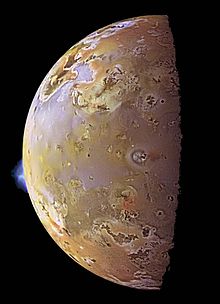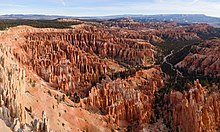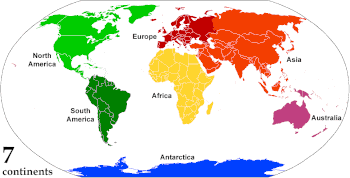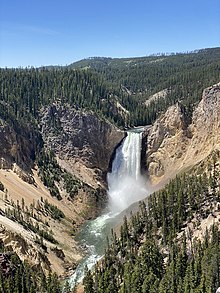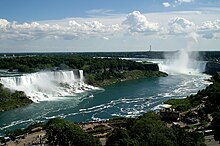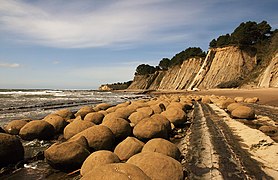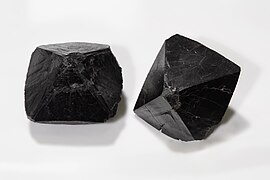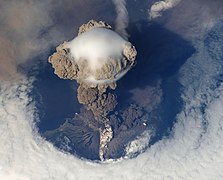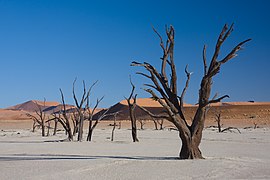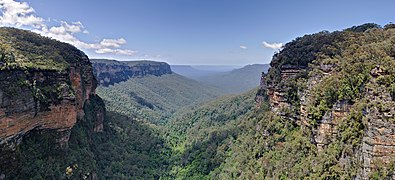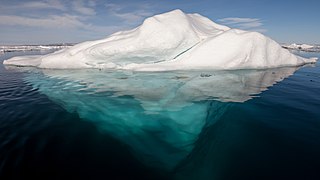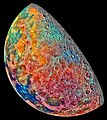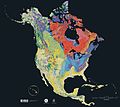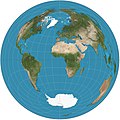Our website is made possible by displaying online advertisements to our visitors.
Please consider supporting us by disabling your ad blocker.
Portal:Geology
The Geology Portal
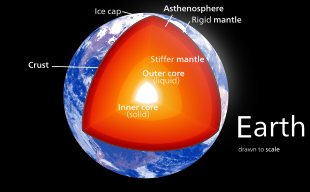
Geology (from Ancient Greek γῆ (gê) 'earth' and λoγία (-logía) 'study of, discourse') is a branch of natural science concerned with the Earth and other astronomical objects, the rocks of which they are composed, and the processes by which they change over time. Modern geology significantly overlaps all other Earth sciences, including hydrology. It is integrated with Earth system science and planetary science.
Geology describes the structure of the Earth on and beneath its surface and the processes that have shaped that structure. Geologists study the mineralogical composition of rocks in order to get insight into their history of formation. Geology determines the relative ages of rocks found at a given location; geochemistry (a branch of geology) determines their absolute ages. By combining various petrological, crystallographic, and paleontological tools, geologists are able to chronicle the geological history of the Earth as a whole. One aspect is to demonstrate the age of the Earth. Geology provides evidence for plate tectonics, the evolutionary history of life, and the Earth's past climates.
Geologists broadly study the properties and processes of Earth and other terrestrial planets. Geologists use a wide variety of methods to understand the Earth's structure and evolution, including fieldwork, rock description, geophysical techniques, chemical analysis, physical experiments, and numerical modelling. In practical terms, geology is important for mineral and hydrocarbon exploration and exploitation, evaluating water resources, understanding natural hazards, remediating environmental problems, and providing insights into past climate change. Geology is a major academic discipline, and it is central to geological engineering and plays an important role in geotechnical engineering. (Full article...)
Recognized content -

An ice core is a core sample that is typically removed from an ice sheet or a high mountain glacier. Since the ice forms from the incremental buildup of annual layers of snow, lower layers are older than upper ones, and an ice core contains ice formed over a range of years. Cores are drilled with hand augers (for shallow holes) or powered drills; they can reach depths of over two miles (3.2 km), and contain ice up to 800,000 years old. (Full article...)
Related portals
Get involved
Henno Martin (15 March 1910 – 7 January 1998) was a German professor of geology who, along with Hermann Korn, lived for two and a half years in the Namib Desert to avoid internment during the Second World War. (Full article...)
Did you know
- ... that from 1904 to 1911 Arthur Lewis Hall covered 17,479 miles (28,130 km), mostly on foot, to map the geology of the Transvaal?
- ... that the geology of the Ellsworth Mountains was explored by geologists using motor toboggans in 1961?
- ... that Frederick Murray Trotter had a distinguished career as a field geologist despite losing a part of his skull and an eye to shrapnel during World War I?
- ... that Kenneth Creer supported applying cosmology to geological problems?
- ... that the Apollo 12 Solar Wind Spectrometer detected a gas-ion shockwave produced by the impact of the Apollo 13 S-IVB stage on the lunar surface?
- ... that English amateur geologist Charlotte Eyton wrote a number of papers and pamphlets on the geology of the Wrekin, a part of Shropshire, between 1862 and 1870?
- ... that geologist Gilbert Wilson was the fifth Wilson at school, so he was known as "Quintus"?
- ... that Karen Hanghøj, the 2023 winner of the William Smith Medal for applied geology, became the first female director of the British Geological Survey, 183 years after it was founded?
Top 10 WikiProject Geology Popular articles of the month
Featured pictures
Main articles
Selected pictures
Associated Wikimedia
The following Wikimedia Foundation sister projects provide more on this subject:
-
Commons
Free media repository -
Wikibooks
Free textbooks and manuals -
Wikidata
Free knowledge base -
Wikinews
Free-content news -
Wikiquote
Collection of quotations -
Wikisource
Free-content library -
Wikiversity
Free learning tools -
Wikivoyage
Free travel guide -
Wiktionary
Dictionary and thesaurus
Previous Page Next Page






